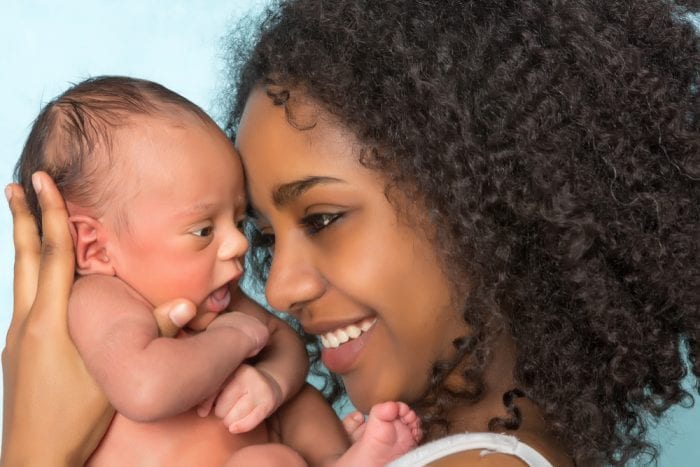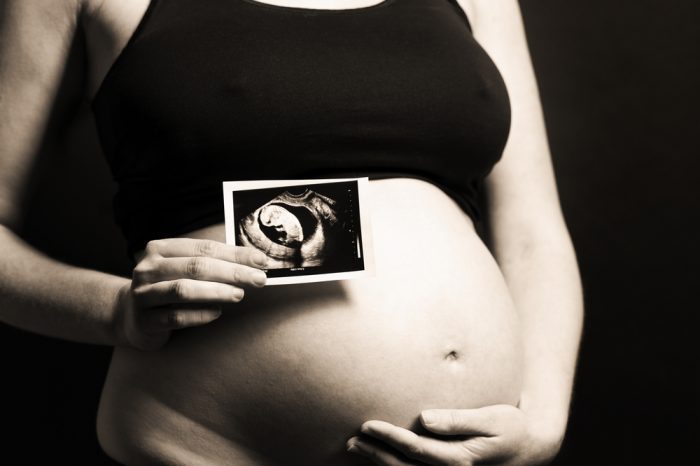The Jamaica Study is 25 years old and still used to support cannabis as nausea medicine during pregnancy.
A study conducted by the University of Massachusetts reveals that babies born to heavy-cannabis-consuming mothers had better neonatal outcomes at 30 days than newborns of non-exposed mothers. You may have heard this study simply called “The Jamaica Study.” Pro-cannabis mom blogs often cite the official title, “Prenatal Marijuana Exposure and Neonatal Outcomes in Jamaica, an Ethnographic Study.” The Jamaica Study was ethnographic research examining neonatal outcomes of: autonomic stability, quality of alertness, irritability, self-regulation, and interaction with caregivers. To their surprise, and in spite of other studies saying the opposite, the researchers found some evidence that has been used to argue the case that cannabis and pregnancy are compatible for its use as nausea medicine.
Aside from this study, other wider and more recent studies have found significant negative neonatal outcomes based on prenatal cannabis use.
Cannabis and Pregnancy Gets Support From Observational Jamaica Study
Ethnographic research is a qualitative method where observers watch participants in the study in their own real life environment. The participants were mothers from a rural Jamaican setting, a region which has a high population of heavy cannabis consumers. It included twenty-four Jamaican neonates exposed prenatally to cannabis. Twenty non-exposed neonates were the control. A neonate is an infant less than a month old.
Researchers observed the neonates at three days after birth and then again at one month. The researchers also used the Brazelton Neonatal Assessment Scale to evaluate the criteria in all of the babies.
At 30 Days, Cannabis-Exposed Babies Were Ahead of Their Peers
There was no significant difference between the two groups of infants at the three day mark. The results after one month, however, revealed that the cannabis-exposed neonates “[had] better physiological stability and required less examiner facilitation to reach organized states.” These babies also achieved better scores in alertness, irritability and autonomic stability than non-exposed neonates. The exposed neonates had more rewarding interactions with their caregivers.
Assessing Neonates With NBAS
The Neonatal Behavioral Assessment Scale (NBAS) is a popular neurobehavioral tool, which Dr. T. Berry Brazelton and his colleagues developed. It describes the newborn’s response to the extra uterine environment. The scale also examines the emerging parent to child relationship. It comprises 28 behavioral items, each scored on a 9-point scale. It also includes an assessment of the infants’ neurological statuses on 20 items, each scored on a 4-point scale.
What Does The Study Say on Cannabis and Pregnancy?
This study allows us to extrapolate certain key conclusions: “The absence of any differences between the exposed and non-exposed groups in the early neonatal period suggests that the better scores of exposed neonates at 1 month are traceable to the cultural positioning and social and economic characteristics of mothers using marijuana that select for the use of marijuana but also promote neonatal development.”
The implications of this study were that there was no deficit in neurological or behavioral patterns found in babies born to cannabis consuming mothers. Contrary to a widely held belief that cannabis use during pregnancy poses serious threats to the growing child, this study demonstrated the opposite.
In fact, in this study, cannabis-exposed neonates showed better outcomes, both behaviorally and neurologically, at one month. This stands in contrast to many other studies, published both before, and after, the Jamaica Study.

Another Study Followed Cannabis Exposed Babies to Age Five
A separate study, also carried out in rural Jamaica, followed 59 children from birth to age 5 years. Study subjects comprised two groups: 50% exposed to cannabis while in the womb and 50% no cannabis exposure. Surveyors matched populations for age, parity, and socioeconomic status.
The Brazelton Neonatal Behavioral Assessment Scales for infancy and the McCarthy Scales of Children’s Abilities for childhood evaluated the participants. The results showed no significant difference in developmental outcomes between the two groups, except that at 30 days the exposed neonates had more favorable scores on autonomic stability and reflexes. The developmental scores calculated at 4 to 5 years were related to the home environment as opposed to prenatal cannabis exposure. The Jamaica Study supports these findings.
Jamaica has a rich history with cannabis, even though the herb has been illegal in the country for many years. Decriminalization of ganja (up to two ounces) arrived in 2015. The Rastafarians consider ganja a sacrament and smoke it for inspirational and spiritual connection. Pregnant women continue to smoke ganja as a form of their spiritual existence, even aside from using it as a nausea medicine.
Doctors Still Give Caution to Cannabis as Nausea Medicine
The American College of Obstetric and Gynaecology still recommends that pregnant women abstain from cannabis with the following advice:
“When marijuana is smoked or eaten, the chemicals reach the fetus by crossing the placenta. Research is limited on the harms of marijuana use during pregnancy. But there are possible risks of [cannabis] use, including babies that are smaller at birth and stillbirth. Using [cannabis] also can be harmful to a pregnant woman’s health. The American College of Obstetricians and Gynecologists recommends that pregnant women not use [cannabis].”
Aside from this warning, other wider and more recent studies have found significant negative neonatal outcomes based on prenatal cannabis use.
How Important are the Results of the Jamaica Study?
Research on cannabis and pregnancy is limited. We know cannabis works as nausea medicine, but we do not yet know if it is the best nausea medicine for pregnant mothers. Can we trust the results of a small sample, observational study? The good news is that researchers, who set this up as a randomized study, paid extreme attention to their sampling techniques. This made sure that despite the small sample size, it was representative of the general population. The final verdict on how cannabis may benefit or harm the developing fetus is still fairly debatable.





